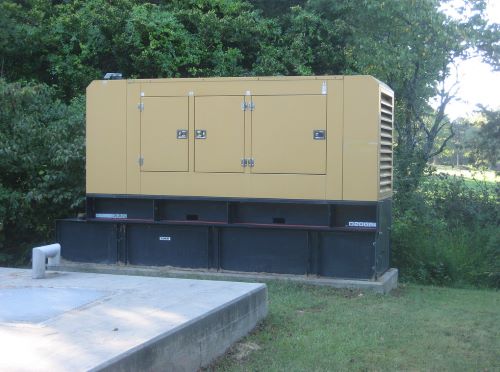

Diesel-fueled generators stand as stalwarts in backup power solutions, offering a reliable energy source for businesses and industries. With their extensive power range, ranging from 10kW to 2,000kW units, these generators boast integrated paralleling controls to meet the diverse energy demands of various facilities. This article delves into the mechanisms through which diesel generators guarantee uninterrupted energy supply, emphasizing their easy maintenance, extreme endurance, and tolerance for dirty fuel.
Easy Maintenance
One of the hallmark features of these generators is their ease of maintenance. Unlike other power solutions that may require intricate upkeep procedures, these generators offer simplicity in maintenance routines. Their robust design and fewer moving parts contribute to reduced maintenance requirements, saving both time and resources for businesses. Routine maintenance tasks like oil changes, filter replacements, and inspections are straightforward, allowing for swift upkeep without extensive downtime.
These generators often have advanced monitoring systems that facilitate proactive maintenance. These systems continuously monitor parameters such as engine performance, fuel levels, and battery health, enabling operators to address potential issues before they escalate into critical failures. Such preemptive maintenance not only enhances the reliability of these generators but also prolongs their operational lifespan, ensuring sustained performance over the long term.
Extreme Endurance
In backup power, endurance reigns supreme, and diesel generators excel. Engineered to withstand prolonged operation under demanding conditions, these generators exhibit exceptional endurance, making them ideal for critical applications where uninterrupted power supply is non-negotiable. Whether facing extreme temperatures, high altitudes, or fluctuating loads, these generators remain steadfast in their performance, delivering consistent power output when it matters most.
The robust construction, coupled with their rugged components, enables them to endure the rigors of continuous operation without succumbing to fatigue. From emergency backup during blackouts to primary power sources in remote locations, they prove their mettle in diverse scenarios, earning the trust of businesses across industries. With their ability to provide uninterrupted power for extended durations, they are reliable guardians of operational continuity, mitigating the risks of power outages.
Dirty Fuel Tolerance
Fuel quality can significantly impact the performance of power generation systems, but they exhibit remarkable tolerance towards dirty fuel—an attribute that enhances their reliability in real-world scenarios. Unlike some alternative fuels that require stringent purity standards, diesel fuel can tolerate a certain degree of contamination without compromising generator performance. This inherent resilience to impurities makes them well-suited for environments where fuel quality may vary or degrade over time.
These generators often incorporate advanced filtration systems that efficiently remove contaminants from the fuel, ensuring clean combustion and optimal engine performance. These filtration systems not only safeguard the integrity of the generator but also contribute to lower emissions and reduced environmental impact. By accommodating a wide range of fuel qualities, they offer operators flexibility and peace of mind, enabling them to operate confidently in diverse conditions without sacrificing performance or reliability.
Advanced Control Systems
In addition to their resilience to dirty fuel, they leverage advanced control systems to optimize performance and efficiency. These sophisticated systems employ cutting-edge technology to monitor and regulate various parameters, ensuring precise control over the generator’s operation. From load management to fuel optimization, these control systems dynamically adjust settings to maximize fuel efficiency and minimize emissions. By harnessing the power of automation and intelligent algorithms, the generators with advanced control systems deliver optimal performance while reducing operational costs and environmental impact.
Remote Monitoring and Diagnostics
Remote monitoring and diagnostics capabilities further enhance the reliability and efficiency. Leveraging connectivity technologies such as IoT (Internet of Things) and telematics, operators can remotely access real-time data regarding the generator’s status, performance, and health. This remote visibility allows for proactive maintenance planning and swift troubleshooting, minimizing downtime and maximizing uptime. Whether monitoring multiple generators across different locations or overseeing a single unit from afar, remote monitoring empowers operators with actionable insights, enabling them to optimize performance and easily ensure an uninterrupted energy supply.
Integrated Redundancy Features
Integrating redundancy features plays a pivotal role in diesel generator design in pursuing continuous energy supply. These redundant components and systems serve as fail-safes against potential failures, ensuring continuity of power even in unforeseen circumstances. From redundant fuel systems to backup cooling mechanisms, these generators are engineered with layers of redundancy to mitigate risks and enhance reliability. By proactively addressing single points of failure, integrated redundancy features bolster resilience, instilling confidence in their ability to deliver a sustained energy supply when it matters most. Diesel generators ensure uninterrupted energy supply for businesses and industries worldwide. With their easy maintenance, extreme endurance, and tolerance for dirty fuel, they embody reliability and resilience in the face of power challenges. From critical facilities requiring continuous operation to remote locations devoid of grid connectivity, they are steadfast guardians of operational continuity, empowering businesses to thrive in an ever-changing energy landscape.


